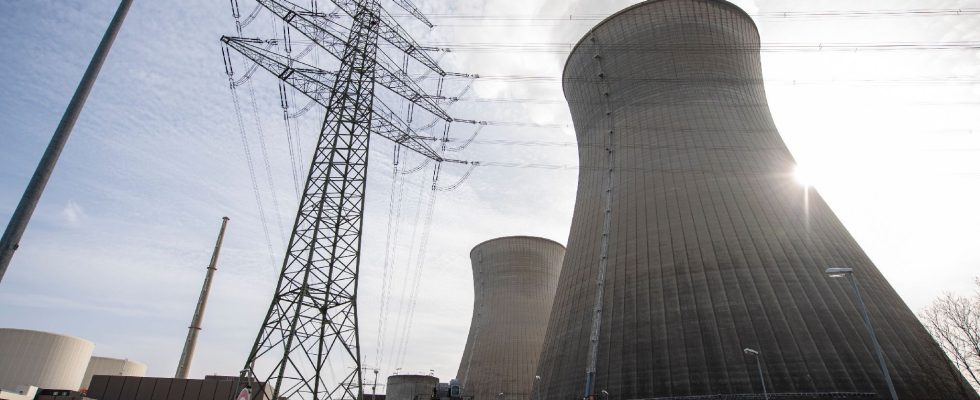Imagine: Germany changes its tune and decides to relaunch its nuclear industry. In the space of 9 to 12 months, it puts eight reactors back into service. Enough to have 85 Twh of additional energy each year, cover the electricity needs of 40% of its industry and reduce its CO2 emissions by 80 million tonnes annually. This scenario is technically possible, ensures a report of the American consulting firm Radiant Energy Group.
A CO2 balance that hardly makes you dream
However, it will probably never see the light of day. “For us Germans, nuclear is a thing of the past, no offense to those who defend it. Politically, it is not an option”, confirms Claudia Kemfert, energy specialist at DIW, the German Institute for economic studies. The situation, however, would justify Germany looking into the question, believes CDU leader Friedrich Merz, who says he is ready, in an interview with the daily Picture, to immediately reconnect nuclear power plants to the grid. Across the Rhine, business leaders have been complaining for months about too high electricity prices, to the point that some are wondering if it would not be better to move the most energy-intensive activities to other countries.
Without nuclear power – but with coal and gas to compensate for the intermittence of renewable energies (ENR) -, our neighbor’s CO2 balance is hardly a dream. On social networks, screenshots taken from the Electricity Map site, showing the carbon intensity (in gCO2-eq/kWh) of the German energy mix at a given moment, are circulating en masse. Invariably, they show that Germany does five to six times worse than France. The president of the Shift Project, Jean-Marc Jancovici, has also made his calculations: if Germany had reduced its use of coal as a priority, it would have already saved 3.3 billion tonnes of CO2, or about five years of broadcasts!
For Dominique Grenêche, professor at Sciences Po and at the National Institute of Nuclear Sciences and Techniques (INSTN), the leading European economy has no lesson to teach. Especially since it has another problem on its hands: it does not yet have the means to store electricity on a large scale, and at an affordable cost. However, this technology is essential for managing the intermittency of solar and wind power. Follower of shock formulas, Yves Bréchet, former High Commissioner for Atomic Energy from 2012 to 2018, sums up the situation in his own way: “The German strategy? It amounts to jumping from a plane without a parachute, while hoping to make it before hitting the ground.
Three past mistakes
“Germany is paying a high price for its past mistakes, analyzes Cécile Maisonneuve, advisor to the Center for Energy and Climate at Ifri, and columnist at L’Express. Three faults have been committed: letting the country enter into too strong a dependence on Russian gas, underestimating the future demand for electricity linked to the electrification of uses – France has moreover done the same -, and renouncing the low-carbon energy source nuclear power. The problem is that there really isn’t a plan B.”
On the other side of the Rhine, the discussions readily relate to the development of interconnections with the electricity networks of other countries, the release of subsidies in order to stabilize the price of electricity for certain companies, or even the development of geothermal energy. But no change of course is on the horizon: the priority remains the deployment of renewable energies, the pace of which has slowed down in recent years.
For Claudia Kemfert, this strategy remains the right one. “It is true that we remain too dependent on gas, which heats around 50% of homes in Germany, and that urgent new measures are needed to put us back on the right path, allowing us to respect the Paris agreements. However, many levers can be activated: for example, the energy efficiency of housing or transport, which counts more than coal in the national carbon footprint. Bureaucracy still hinders the deployment of wind turbines. In addition, certain lobbies overestimate the demand for energy future and the need for electricity storage, which tends to darken the picture”.
Germany would therefore not necessarily be heading for disaster. “Be careful not to bury it too quickly, abounds Thomas Pellerin-Carlin, director of the Europe program of the Institute for Climate Economics (I4CE). It can be tempting to see the future as a binary choice: succeed or crash. Energy policy works differently. For the Germany of 2023, aiming for 100% renewable energy is a bit like a 19th century explorer going up the Nile to find its source. We know that it is technically possible, because each river has one or more. We also suspect that it will be complicated, that the expedition will be long, that there will be good surprises and bad ones. But, in the end, the important thing is that Germany closer to his goal. And the expert adds mischievously: “The relaunch of nuclear power in France can also be likened to a binary bet. Either it succeeds and that’s good for the country, or it gets bogged down in d ‘endless excessively expensive projects’. The future will tell who is right.
